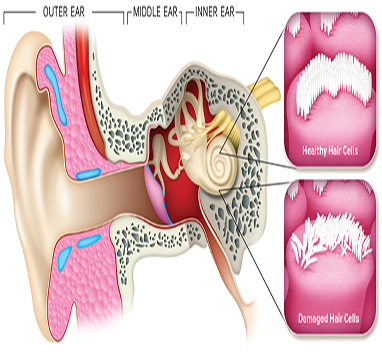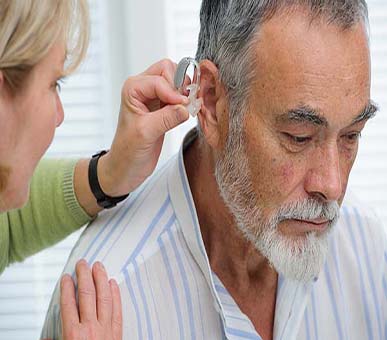How do you interact to people with an untreated hearing loss?

Hearing Information

Hearing is not only an issue for the elderly. Hearing is a health and quality of life issue. Don't wait for hearing impairment to become a problem.
Hearing and understanding are basic human needs. Hearing problems and the resulting social consequences represent a challenge for society. We believe in a world in which people with restricted hearing can communicate again without limitation thanks to advanced technology.
When Hearing loss goes untreated, the hard-of-hearing individual may exhibit one or more of these symptoms:
Increased frustration with self, family and friends, Low self-esteem/self confidence, Social isolation, Anger, Annoyance and Depression
Our Services for your Hearing

Hearing aid evaluation, fitting and dispensing. Hearing aid programming and adjustments. Hearing aid repairs to all makes & models. Assistive listening devices. Evening, weekend & home appointments available. Ear wax removal. Custom noise protection (musician mold, swim molds and noise protectors). Aural rehabilitation & counseling services for individuals and families. Hearing Assessment and Consultations (hearing tests). Battery sales (Our value added all in programme includes three years free batteries). Tympanometry.


Hearing Aids Help with Your Balance

We use our vision to help us balance. If we walk outside and the path is uneven, we adjust our steps and our balance based on this visual information.
Therefore, wouldn’t it make sense that our hearing also may affect our balance?
According to a study conducted by the Washington University School of Medicine, people who have hearing loss and who wear hearing aids appeared to have better balance than those with a hearing loss and no hearing aids. Participants seemed to be using the sound information from their hearing aids as auditory reference points or markers to help maintain their balance.
A study that appeared in the Archives of Internal Medicine, conducted with clients aged 40 to 69 by Johns Hopkins Medical Institution, confirmed that hearing does contribute to balance. Even with a mild loss (25 decibels), people are nearly three times more likely to have a history of falls than people without a hearing loss. They were also able to determine that as the hearing decreased, the risk of falls increased.
Denial of Hearing Loss

How do you interact to people with an untreated hearing loss? The majority of us become frustrated with the constant repeating of conversations. We are less likely to interact with people who constantly ask us to repeat ourselves. Yet, if we are the person with an untreated hearing loss, we overwhelmingly deny the possibility that others could react to us with that same frustration.

[vc_row full_width=”stretch_row_content” css=”.vc_custom_1556820907204{background-color: #a6b3bf !important;}”][vc_column width=”1/6″][vc_column_text css=”.vc_custom_1556822424483{background-color: #eddac4 !important;border-radius: 5px !important;}”]CONNECT WITH US ON[/vc_column_text][/vc_column][vc_column width=”1/6″][vc_facebook][/vc_column][vc_column width=”1/12″][vc_tweetmeme type=”mention” mention_tweet_to=”https://twitter.com/” css=”.vc_custom_1556821429116{border-radius: 5px !important;}”][/vc_column][vc_column width=”1/12″][vc_pinterest][/vc_column][/vc_row]
